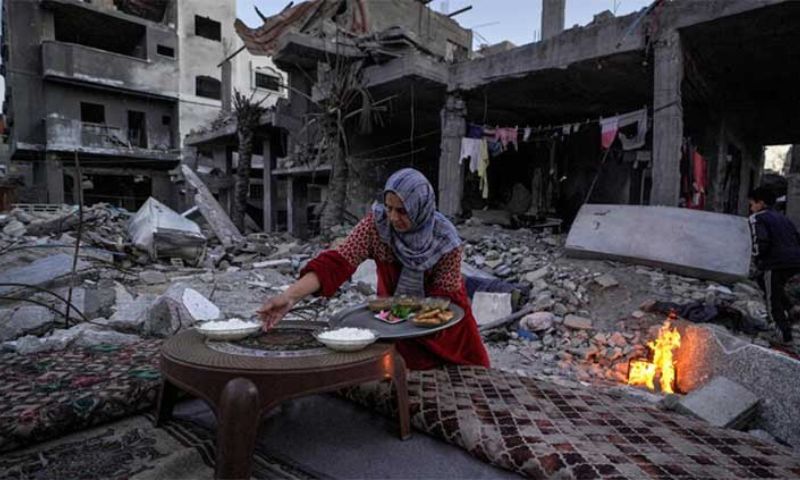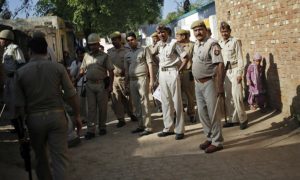GAZA: The first day of the holy month of Ramadan came and went in Gaza, with residents marking a joyless iftar against a backdrop of famine, disease and displacement as the ferocious Israeli attacks in the besieged territory continued since October 7 last year.
As the Muslim world ushered in the holy month of Ramadan, Gaza residents found themselves amidst a grim reality of continued Israeli bombardments and a deepening humanitarian crisis. The first day of Ramadan passed in Gaza with little of the customary joy and celebration.
Amidst the fasting and prayers, Gaza’s residents faced the stark reality of malnutrition and dehydration, with a UN report citing the death toll from famine reaching 25, mostly affecting children. Access to essential food and aid has dwindled, exacerbating an already dire situation.
Gazans Receive Ramadan Amid Widespread Famine
In Gaza’s southern border city of Rafah, where over 1.5 million Palestinians have sought refuge, the traditional iftar meal—marking the end of the day’s fast—was replaced by meager provisions, such as canned food and beans. Displaced residents spoke of the absence of joy and the harsh living conditions they endure, with many forced to dwell in tents amidst the cold and rubble.
The ongoing conflict has strained humanitarian efforts, with aid groups warning of a looming famine in Gaza. Despite international calls for increased aid deliveries, accessing the northern areas of Gaza has proven challenging, further exacerbating the crisis.
Efforts to alleviate the suffering include a maritime aid corridor initiative from Cyprus, aimed at providing relief supplies to Gaza. However, cumbersome screenings and logistical challenges have hindered aid distribution, leaving many Gazans desperate for assistance.
While foreign governments have resorted to airdrops and alternative delivery methods, aid workers emphasize the urgency of land deliveries to effectively address the humanitarian crisis.

























